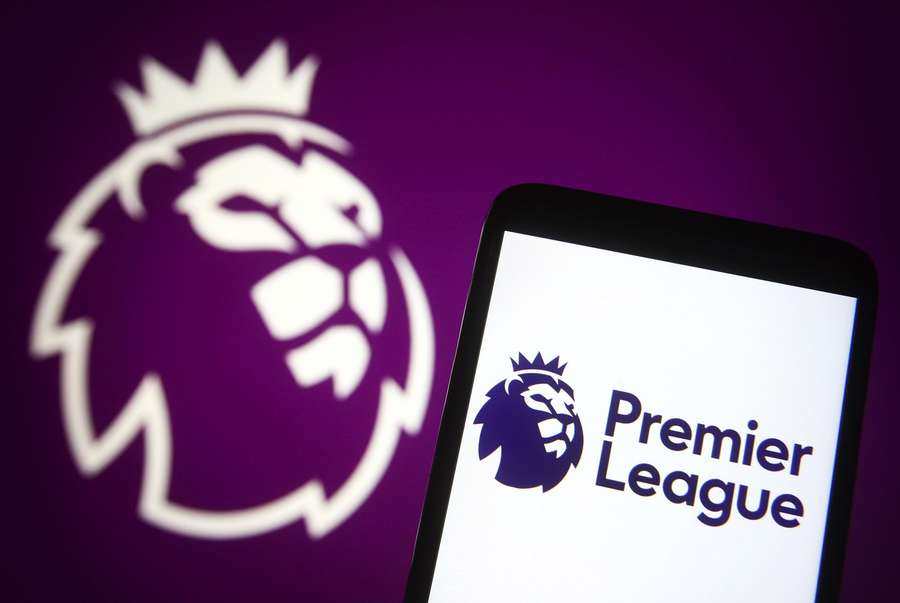European leagues look on helplessly at 'wild' Premier League spending

Chelsea have stolen most of the headlines with their eye-watering purchase of Argentina midfielder Enzo Fernandez from Benfica for an English record of £107 million.
But he was just one of seven players to move to Stamford Bridge from clubs elsewhere in Europe, and Chelsea were not the only ones spending big.
Of the top 20 January transfers according to specialist site Transfermarkt, only two did not involve Premier League clubs -- one was Marseille selling Brazil midfielder Gerson back to Flamengo, and the other was the French side buying Portuguese striker Vitinha from Braga in a €32 million deal.
There were no major moves involving any of the continent's powerhouses, with not even Paris Saint-Germain getting out their chequebook -- they failed in an attempt to sign Hakim Ziyech on loan from Chelsea.
The spending of the London outfit under new American owner Todd Boehly's consortium was watched particularly closely by Borussia Dortmund, who will be their opponents in the last 16 of the Champions League this month.
"It is very wild, you just have to say that. They are running in their own race," Dortmund sporting director Sebastian Kehl told Sky Germany.
The Premier League's financial dominance is fuelled by domestic and international television revenues which are far higher than in any of the other so-called Big Five European leagues, in Spain, Italy, Germany and France.
Eleven of the top 20 revenue-generating clubs in the world last year are from the Premier League, according to Deloitte's latest Football Money League.
The rest now struggle to keep up, and La Liga has also accused Premier League sides of being "doped" because of phenomenally wealthy shareholders putting in additional money to then spend on new players.
"Essentially they are 'doping' the club. They are injecting money not generated by the club, for it to spend, which puts the viability of the club at risk if the shareholder leaves," claimed Javier Gomez, La Liga's corporate director general, in a video defending their own stringent financial rules within Spain's top flight.
"In our opinion that is cheating because it drags down the rest of the leagues."
Is there still hope?
Gomez said La Liga would continue to demand new financial rules be applied by UEFA, whose own Financial Fair Play regulations have not been able to halt the increasing polarisation in top-level European football.
Others have highlighted the increasing spending power of more modest English clubs.
Take Bournemouth, who had never played in England's top flight before 2015 and whose stadium has a capacity of little over 11,000.
In January they signed Dango Ouattara from French side Lorient in a 27 million-euro deal and then added Illia Zabarnyi, an outstanding defensive prospect at Dynamo Kyiv, for a similar fee.
They were not the Cherries' only signings either.
"While Europe is wondering about the dangers of the Super League, we need to acknowledge that there is already a super league and it makes the rules," said an editorial in Italy's Corriere dello Sport.
"The real strength of the Premier League is the spending capacity of the little clubs: Bournemouth, who are fighting for safety, have the resources and audacity to ask Roma for (Nicolo) Zaniolo before flippantly knocking at Sassuolo's door for (Hamed) Traore and unloading €30 million."
So is there still hope for the rest of Europe?
They will keep producing more outstanding players and there is no guarantee Premier League teams will sweep the European trophies this season.
After all, they did not win any last year, when Real Madrid beat Liverpool in the Champions League final.
"I don't think this will end the competitiveness of European competitions," insisted Real's former Chelsea coach, Carlo Ancelotti.
"Last year the Champions League was not won by an English side, nor the Europa League...(but) it's true internally the Premier League will be more competitive and entertaining."

